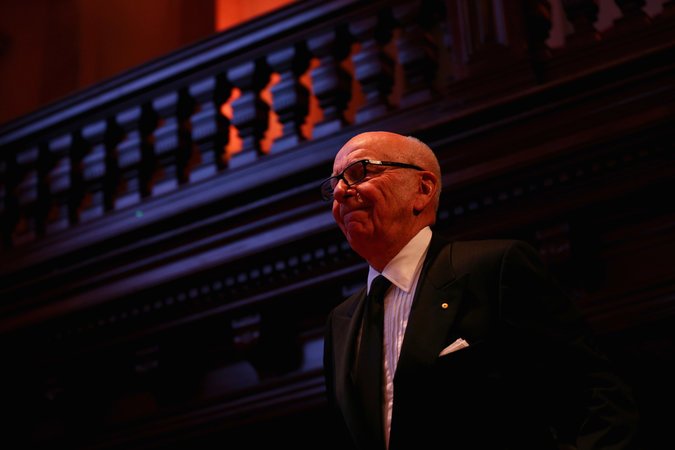The media industry has undergone significant change since the blockbuster deal was announced in October 2016.
Rupert Murdoch, who pursued Time Warner just three and a half years ago, has gone from buyer to seller, and made a deal to hand over much of his 21st Century Fox empire to Disney for $52 billion. Discovery made a bid and has now closed on an $11.9 billion deal for Scripps Networks Interactive, the home of cable channels like HGTV and Food Network. Viacom and CBS Corporation are exploring the possibility of joining once more.
All the while, digital rivals keep tossing money around.
Netflix is now spending up to $8 billion a year on content, up from $6 billion in 2016. Its free cash flow could balloon to negative $4 billion this year but its market value has skyrocketed to $139 billion from roughly $54 billion since the Time Warner-ATT deal was announced.
Apple is competing directly with HBO, TBS and TNT by pouring what will soon be in excess of $1 billion into original programming, building relationships with Hollywood stars like Reese Witherspoon, Kristen Wiig, M. Night Shyamalan and Steven Spielberg. Amazon has appointed a new leader, and Hulu is beginning to find its sea legs. And even Facebook and Google’s YouTube are offering Hollywood tens of millions of dollars to buy up original content.

And while Netflix, Amazon, Facebook, Google and Apple have opened their wallets, Time Warner has been sitting on the sidelines.
“It’s bad in the sense that that’s a lost year and a half from business planning perspective,” said Brian Wieser, a senior analyst at Pivotal.
A Time Warner spokesman said the company was “confident they would prevail at trial.” He would not speculate on what would happen should the judge, Richard Leon of the United States District Court of the District of Columbia, rule for the government.
Advertisement
Continue reading the main story
The Justice Department argues that since ATT has such a wide distribution network (it owns DirecTV), a deal could spell disaster for consumers. ATT has countered that costs for consumers would likely go down.
Though Time Warner has been in a state of limbo for the last 18 months, analysts agree that its core businesses have been performing well.
“The wheels certainly haven’t fallen off,” Mr. Wieser said.
And while some think the deal being blocked will scare off potential suitors, there are many analysts who are convinced that Time Warner is too attractive to sit alone for long. For example, could HBO and Warner Bros. be sliced off and sold to companies like Apple or Amazon? The networks TNT and TBS to an entity like Viacom?
Newsletter Sign Up
Continue reading the main story
Thank you for subscribing.
An error has occurred. Please try again later.
You are already subscribed to this email.
“If there is a demand for other media assets, there is nothing on the scale of Time Warner anymore,” said Kannan Venkateshwar, an analyst at Barclays Capital. “That gives it a scarcity value.”
Mr. Venkateshwar also pointed out that Time Warner would benefit from the new tax law, which would give the company even more runway if it has to go another year or two by itself.
Another analyst, Amy Yong, at Macquarie Group, said: “You can’t really dismiss how powerful HBO is. And Warner Bros. the studio. And, even to some extent, Turner and CNN. These are great consumer brands.”
HBO continues to be a juggernaut, producing hit shows like “Westworld” (which returns next month) and “Game of Thrones.” The network’s annual revenues now exceed $6 billion. It also now has five million digital subscribers, proving that it has made a steady transition into the over-the-top world.

Warner Bros., propelled by the blockbusters “Wonder Woman” and “It,” had a strong year at the box office, and the studio had revenues of nearly $14 billion. And since Donald J. Trump announced his presidential run nearly three years ago, CNN has set ratings records.
Still, HBO’s longtime spot in the pole position of the television industry isn’t so certain. In 2015, Netflix had 92 fewer Emmy nominations than HBO. Last year, the gap was just 20. Netflix and Amazon now spend more on content than HBO, and it could simply be a matter of time before Apple does as well. Indeed, HBO executives now speak about the network more as a high-end boutique — curators of content, they like to say — than as the free-spending New York Yankees of the industry.
Advertisement
Continue reading the main story
Warner Bros., among its slate of hits, also had several misfires, like “Justice League” and “King Arthur: Legend of the Sword.”
And though CNN’s revenues have grown, it hasn’t been at the rate of MSNBC and Fox News, which draw more viewers in prime time. TBS and TNT, and Turner’s slate of cable channels, continue to experience ratings declines as more consumers cut the cord.
Nevertheless, the research firm MoffettNathanson has told investors that Time Warner’s upside “has been overlooked because it is tied up in deal hell.”
The firm believes that if the ATT acquisition falls apart, Time Warner could be split up and sold to the highest bidder — and perhaps even thrive as a result.
“The separation of Time Warner would likely draw two distinct sets of bidders into the marketplace,” it told investors. “On the content side, we would expect to see interest from current film entertainment competitors like Sony and CBS/Viacom and even new scripted digital entrants like Apple or Amazon. As for Turner, we would think there would be interest from existing cable network operators like Viacom or Discovery.”
But what would the ripples be if the deal collapses?
“Let’s just say they also block the Fox-Disney acquisition for some reason, that would all of a sudden make you go, ‘Oh, there’s actually an active effort to restrain the size of business,’” Mr. Wieser said. “That’d have an effect on all industries, not just media.”
Most analysts regard that outcome — both the ATT-Time Warner and Fox-Disney deals being blocked — as unlikely, but the question becomes far more existential for Time Warner and its direct peers if the ATT deal goes down. If they aren’t allowed to scale up to compete with Silicon Valley, how long could they be around?
“You suddenly have, from scratch, for the last six or eight years, $15 billion being spent by Amazon or Netflix,” Mr. Zaslav, the Discovery chief executive, said. “That could soon be $20 or $25 billion. It’s important for the ecosystem to not allow these transformers to turn out the lights on all these important creative businesses.”
Continue reading the main story
Article source: https://www.nytimes.com/2018/03/17/business/media/time-warner-att-justice-department.html?partner=rss&emc=rss
Speak Your Mind
You must be logged in to post a comment.